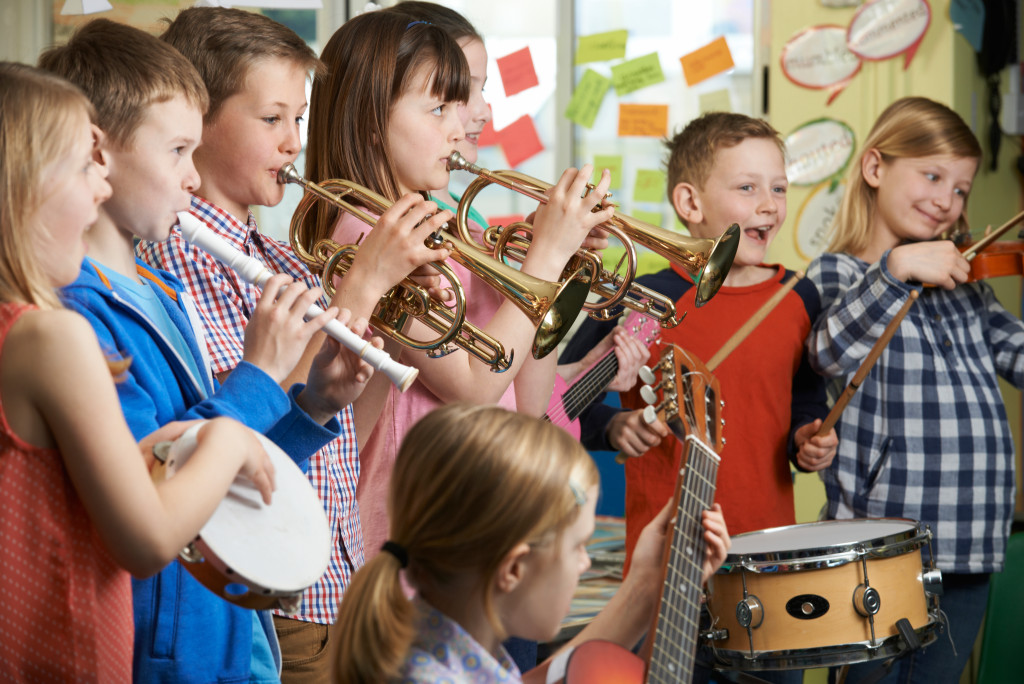Nothing in life is more gratifying than learning to play a musical instrument. Music has a way of enriching our lives and connecting us to others in a profound way. And, contrary to popular belief, you’re never too old to learn how to play an instrument. Learning music can change your life in ways you never thought possible. Here are three reasons why:
Playing Music Can Relieve Stress and Anxiety
We live in a fast-paced, stressful world where it’s easy to get caught up in the rat race and forget what’s truly important in life. When you learn to play music, you give yourself an outlet to forget about your troubles and enjoy the moment. Research has shown that playing an instrument can lower blood pressure, reduce stress hormones, and slow down your heart rate, decreasing overall anxiety levels.
Music impacts your emotions and may be utilized to help you deal with difficult circumstances in your life. According to research by the University of Stanford, music therapy is an effective treatment for people suffering from anxiety and depression. Music therapy was found to help patients feel less anxious and have a better mood.
According to studies, music with a tempo of 60 beats per minute may synchronize the brain with the rhythm, resulting in alpha waves of 8 to 14 hertz or cycles per second. This is our state of mind when we are calm and attentive. Utilizing relaxing and listening to soothing music, it might take 45 minutes for someone to fall asleep.
So, if you’re looking for a way to relax and de-stress, learning music might be just what you need.
Music Can Help Improve Your Memory and Cognitive Skills
Playing music requires split-second decision-making and coordination between the different parts of your brain. This mental stimulation can help increase neural connectivity and prevent age-related cognitive decline. Moreover, research has shown that studying music can improve memory recall, IQ scores, and task flexibility—skills that translate far beyond music and into other areas of life.
Two studies—one from the United States and another from Japan—found that music doesn’t only allow us to access stored memories, but it also helps form new ones. In moderate physical exercise classes where people were accompanied by music, elderly individuals in both countries scored better on memory and reasoning tests.
Music can help your memory and brain function by teaching you how to play it. Music training has been shown in studies to enhance verbal intelligence, memory, and executive functioning. Working memory, which is responsible for short-term memory and information retention while processing it, was also enhanced through music study. Learning music may be the answer if you seek a method to improve your brainpower.

Learning Music Can Foster Creativity and Self-Expression
Music is a form of self-expression that allows you to communicate emotions and feelings that cannot be conveyed through words alone. When you learn how to play an instrument, you open yourself up to a whole new world of creative possibilities. Whether you’re writing your own songs or performing someone else’s compositions, playing music gives you a unique opportunity to express yourself in a personal and powerful way. Learning music might be the key if you’re looking for a way to tap into your inner creativity.
Music can also be a form of self-expression. Studies have shown that music can help people express themselves and their emotions. Music can also be used as a form of communication, especially for those unable to communicate verbally. Music can also help people connect with others on a deeper level. For children, music can be a way to express themselves and their feelings. Music can help adults connect with their inner emotions and feelings.
Educators can capitalize on its strengths to bolster simple student tasks by being mindful of how music can be incorporated. It’s also worth noting that the type of tunes makes a difference; learners usually excel when listening to soothing songs. A music teacher, for example, can thoughtfully and responsively use musicality in the classroom to enhance learning and excitement.
There are many creative ways to integrate music into your learning environment, regardless of your prior expertise with music. Music may be used to enhance the atmosphere in your classroom and encourage student growth by creating a peaceful mood for focused work, enlivening a lesson on poetry, or fostering community.
Conclusion
Music has the power to change our lives in ways we never thought possible— from reducing stress and anxiety levels to fostering creativity and self-expression. So what are you waiting for? Pick up an instrument today and start reaping the many benefits of learning music!

